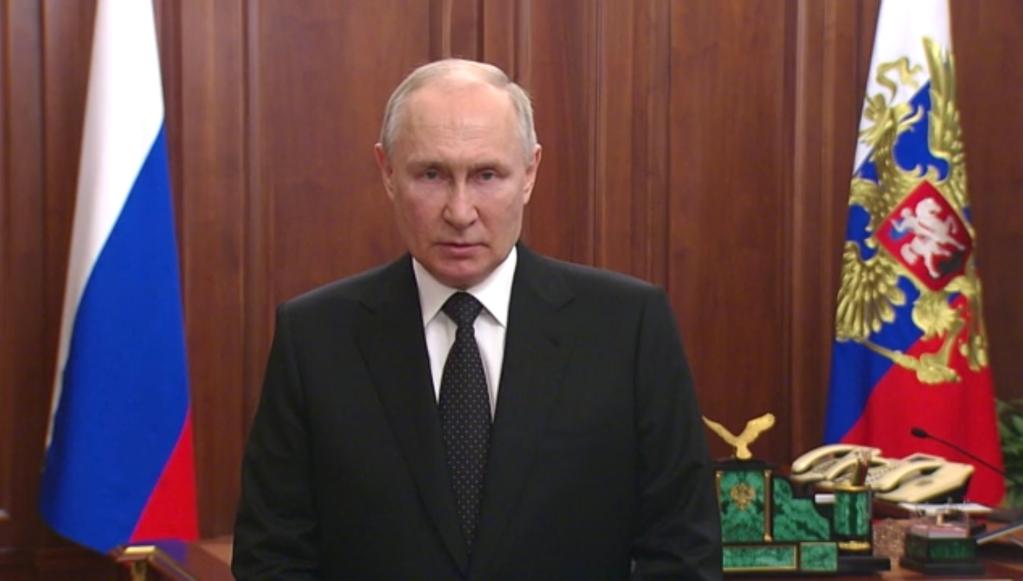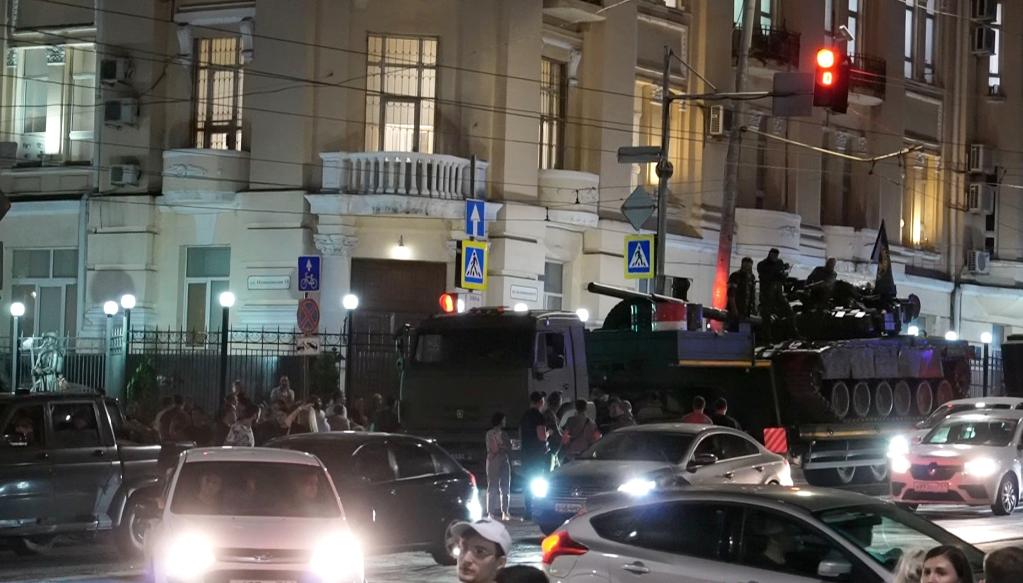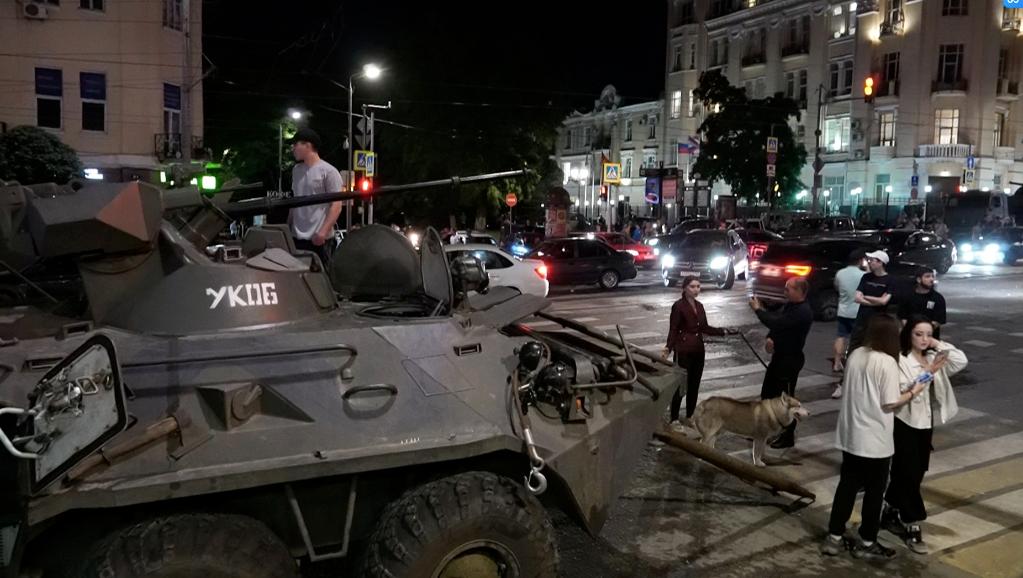Hot question and answer: Why can the tension caused by Wagner incident be quickly eased?
Xinhua News Agency, Moscow, June 25th Hot question and answer: Why can the tension caused by Wagner incident be quickly eased?
Xinhua news agency reporter
On the evening of June 24th, Prigozhin, the founder of Wagner Organization, a Russian private military entity, accepted the proposal of Belarusian President Lukashenko to stop the organization’s operations in Russia and take further measures to ease tensions. Members of Wagner organization stopped marching in Russia and turned around and returned to the field camp. Members of Wagner organization and heavy equipment completely left the area where the headquarters of the southern Russian military region was located late at night on the 24th.
The Wagner organization was suspected of inciting rebellion late at night on the 23rd, which caused tension in Russia. On the evening of 24th, the tense situation eased. How did this happen?
Russian President’s Statement Shocks Rebels

On June 24th, Russian President Vladimir Putin delivered a televised speech (video screenshot). Xinhua news agency
The key node to ease the Wagner incident was the televised speech delivered by Russian President Vladimir Putin on the 24th.
Putin said that the act of splitting and uniting is essentially a betrayal of the people and their comrades fighting at the front line, and a stab in the back for the country and the people. The rebel organizers betrayed Russia and will be punished for it. Putin urged "those who were dragged into this crime to stop participating in criminal actions."
Russian public opinion generally believes that Putin’s characterization of this incident shows his "firm determination to safeguard national unity, which has greatly shocked the rebel participants and shaken their will."
Bashirov, a Russian political analyst, believes that some Wagner members "did not voluntarily participate in the rebellion". "After President Putin clearly pointed out that this was a rebellion, they found themselves misled, and the president’s speech played an important role in solving the problem".
俄国防部通过媒体呼吁瓦格纳组织成员不要参与叛乱。俄国防部说,许多该组织成员意识到自己的错误并请求帮助,所有求助者已得到必要帮助,俄国防部将确保所有人的安全。
“20年老友”出面调停

6月24日,在俄罗斯顿河畔罗斯托夫,坦克准备撤离(视频截图)。新华社发(弗拉基米尔摄)
莫斯科时间24日20时许,媒体相继报道瓦格纳事件转折性一幕:普里戈任接受白俄罗斯总统卢卡申科有关停止瓦格纳组织在俄境内行动并采取进一步措施缓和紧张局势的建议。
这一消息随即得到普里戈任本人及俄方证实。俄罗斯罗斯托夫州州长戈卢别夫在社交媒体上发文说,瓦格纳组织成员已撤出顿河畔罗斯托夫并前往其野战营地。至此事件趋于缓和。
克里姆林宫方面说,卢卡申科自愿参与调停,“因为他同普里戈任有20年交情”,俄方尊重卢卡申科为调停瓦格纳事件付出的努力。
俄舆论普遍认为,普京保证普里戈任能够前往白俄罗斯并将撤销对其刑事立案,参与24日行动的瓦格纳组织成员不会被起诉,未参加叛乱的瓦格纳组织成员可与俄国防部签订合同等,这些都是能达成和解的重要前提。
Russian military expert Shurygin believes that with the development of the situation, it is extremely necessary for both sides to reach a settlement: for Putin, it is important not to let confrontation turn into bloodshed, and it is even more impossible to take military action to destroy military organizations with combat effectiveness; For Prigozhin, his radical actions have "cornered" himself and left him in a desperate situation, so it is equally necessary for him to reach a settlement.
Russian public opinion "one-sided" condemned the rebellion

On June 24th, in Rostov-on-Don, Russia, local residents stood beside armored vehicles (video screenshot). Xinhua News Agency (photo by Vladimir)
Russian public opinion believes that social pressure is also an important factor in Prigozhin’s final compromise. Representatives, politicians and religious leaders from all over Russia strongly condemned the incident and made it clear that they stood on the side of the Russian federal government and stability and peace.
After Putin defined the behavior of Wagner members as rebellion, rogozin, the former president of Russian National Aerospace Corporation, warned Prigozhin on social media not to help the enemy, but to "fully support the front". Kozhemyako, the chief executive of Primorsky Territory of Russia, issued a statement calling on Wagner members to be "sober" and "not to commit crimes that will be regretted".
Batulin, a Russian political critic, believes that this incident lacks the support of the public and social elites, and all sectors of Russian society generally trust Putin. "Internal differences cannot shake the foundation of the Russian state." (Note holder: Chen Chang, Hua Di)